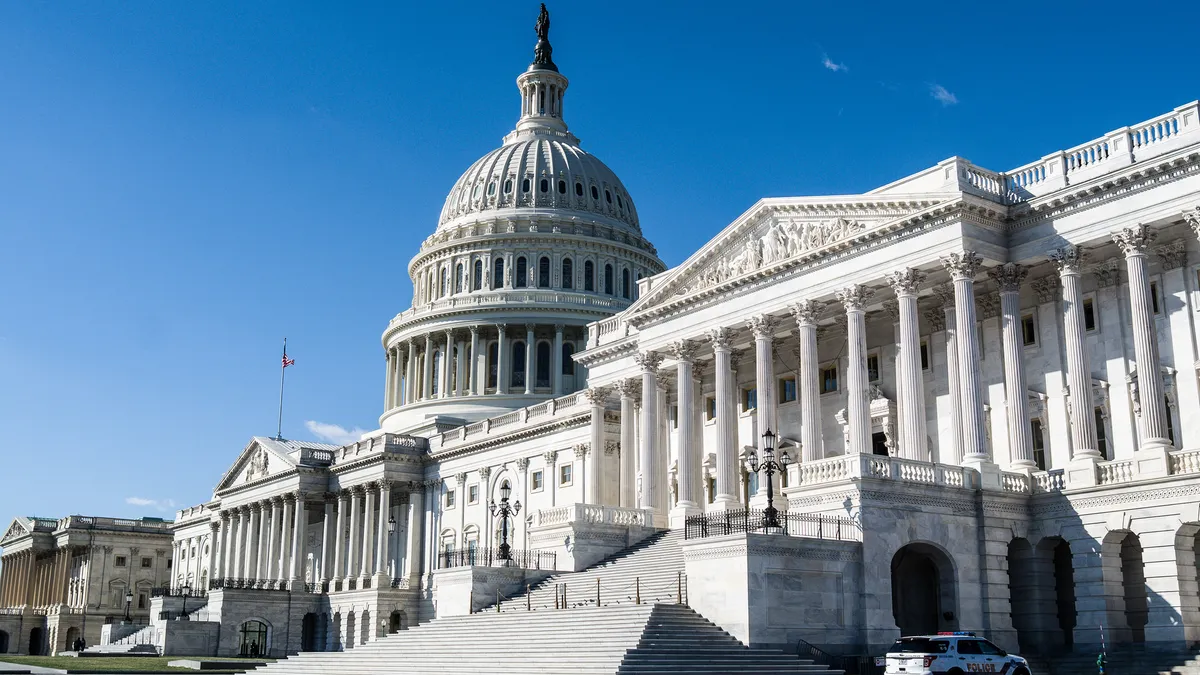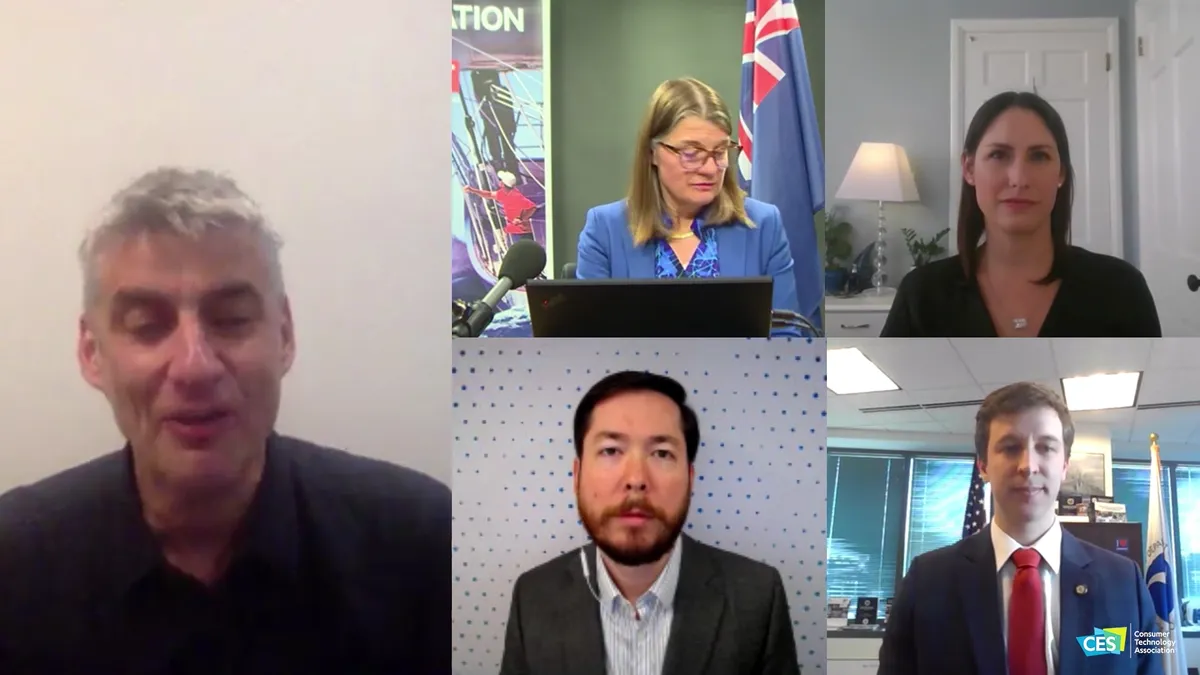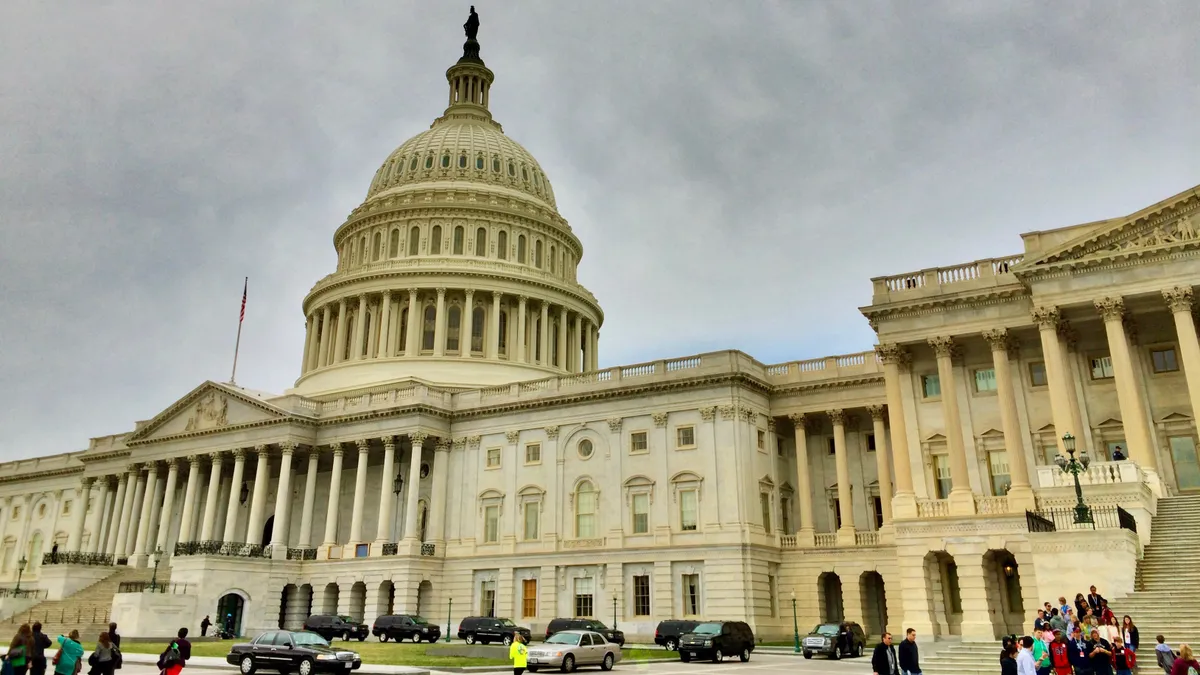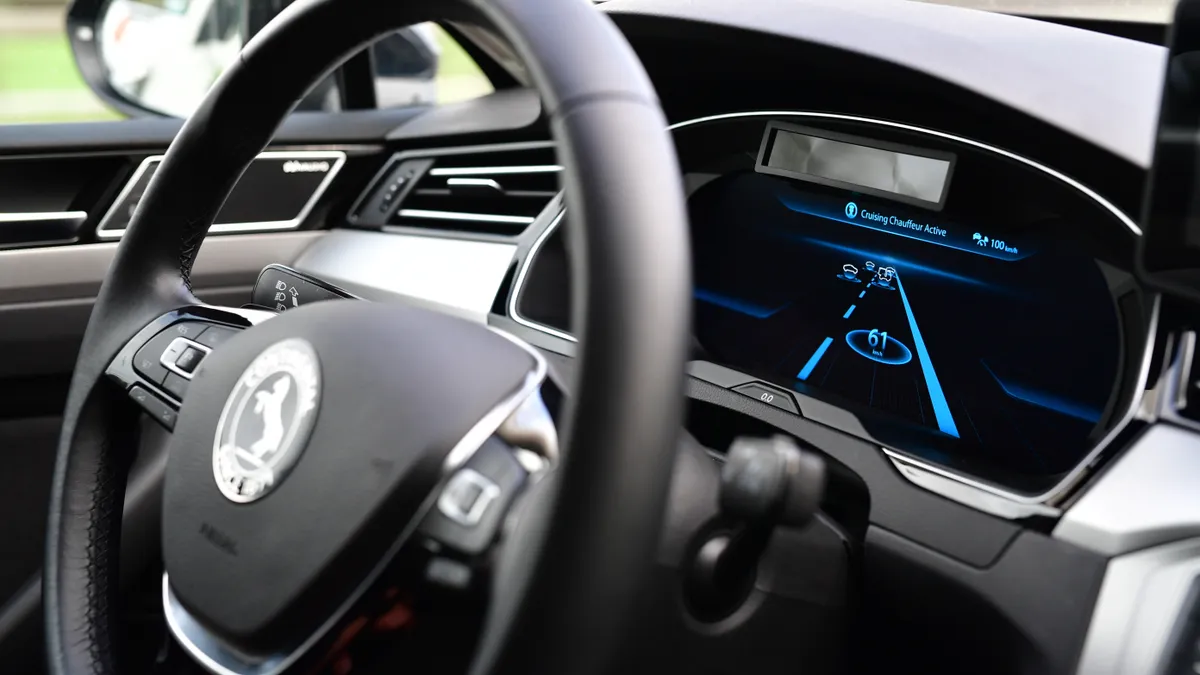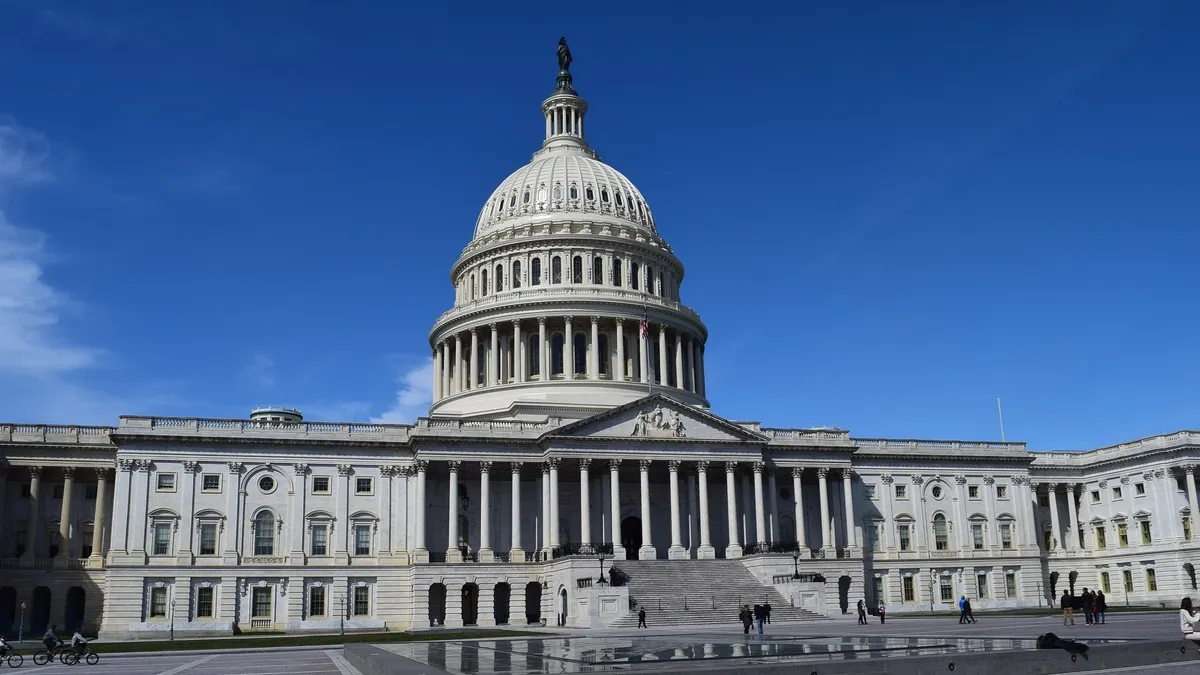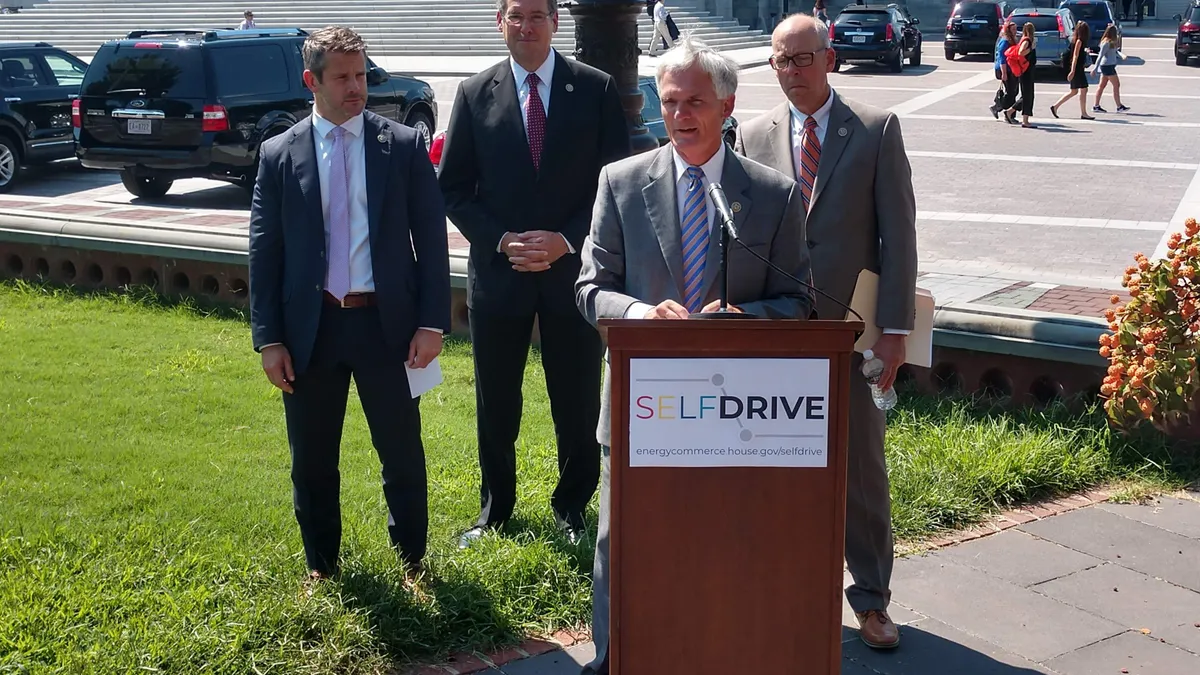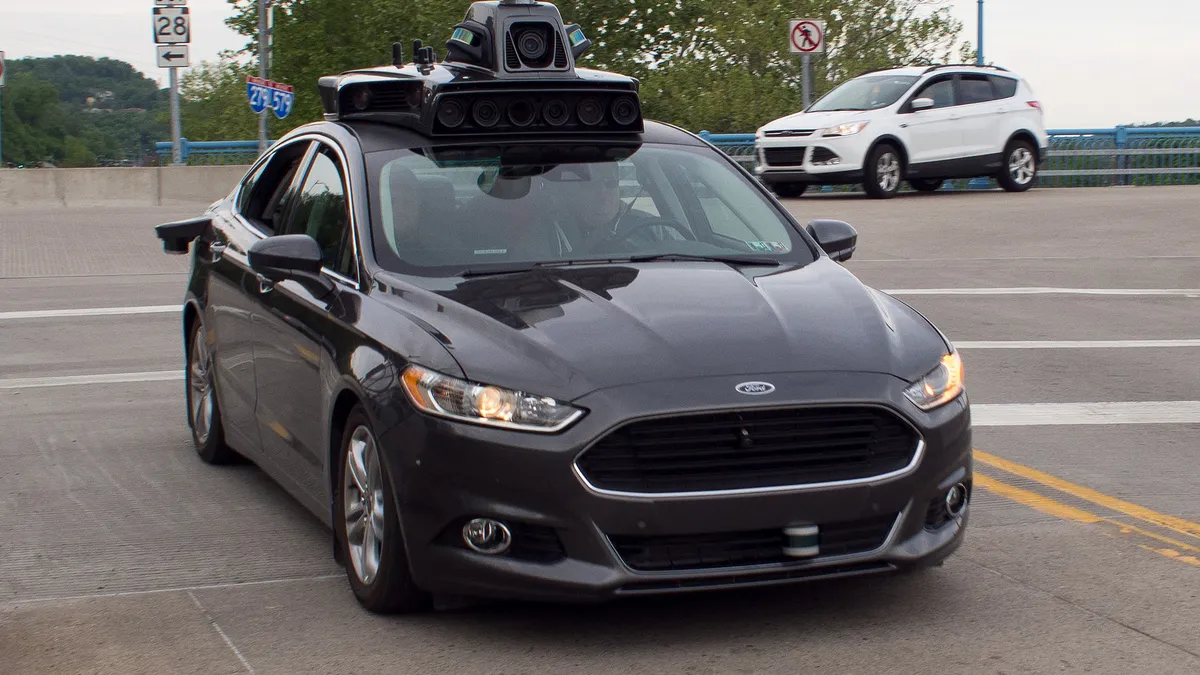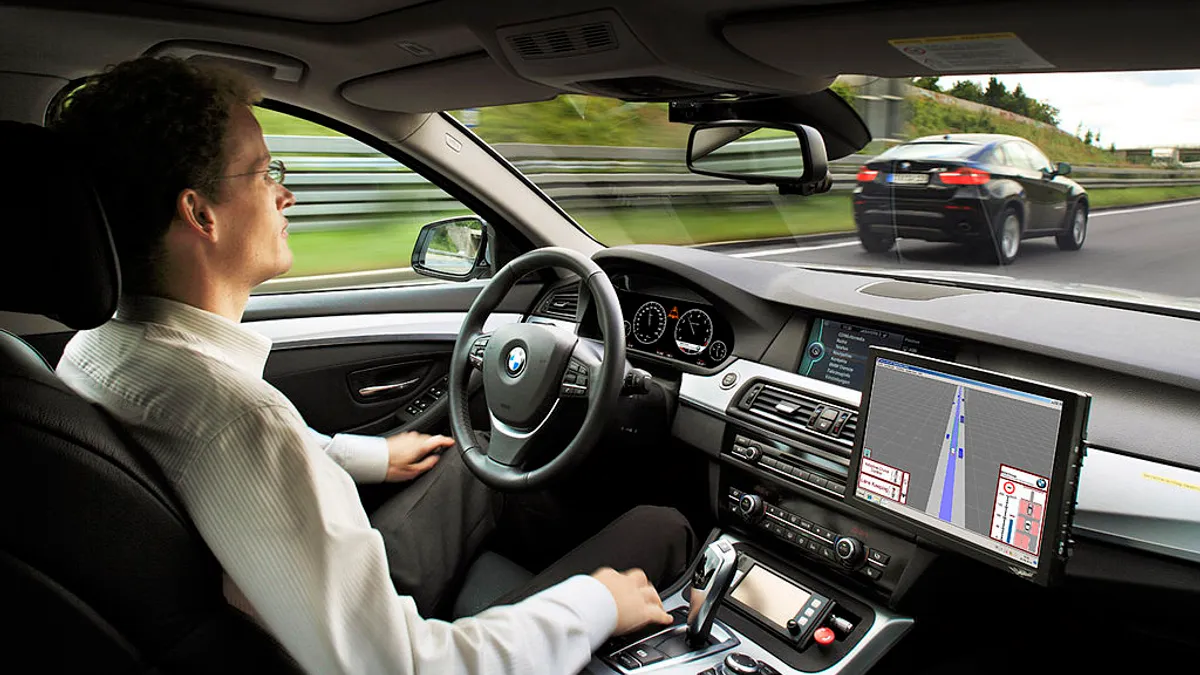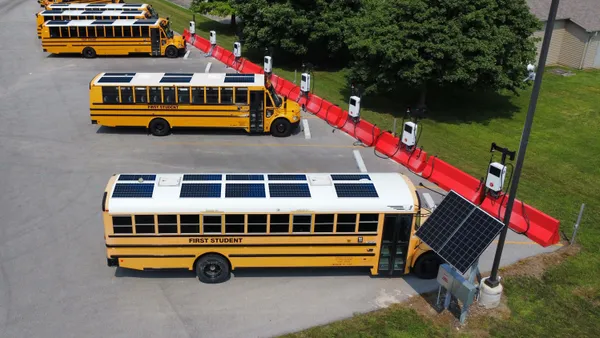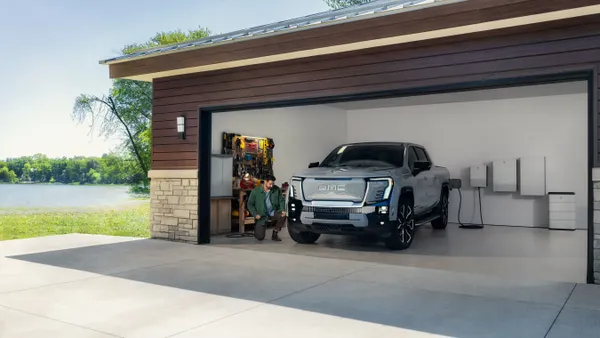Dive Brief:
- U.S. Sen. Gary Peters, D-MI, said more thought must be given to the impact of autonomous vehicles on the workforce, especially on those who drive trucks or drive for ride-hailing companies like Uber and Lyft while speaking at an event about the future of transportation in Washington, DC Wednesday morning. He also said more work needs to be done on the "moral and ethical decisions" AVs must evaluate, similar to human drivers.
- Peters said more AVs could reduce the number of traffic deaths, injuries and accidents, as 94% are caused by human error. "If you take human error out of the equation, you’re going to save thousands of lives, not to mention all the injuries that occur," he said.
- Alongside U.S. Sen. John Thune, R-SD, Peters helped pass in October the bipartisan American Vision for Safer Transportation Through Advancement of Revolutionary Technologies (AV START) Act through the Senate Commerce Committee, although he noted that the bill does not address any labor issues more AVs could cause or around ethics. The bill has not yet been taken up by the full Senate.
Dive Insight:
The progress on AVs in Congress is encouraging, even as the U.S. House of Representatives passed the SELF DRIVE Act on a voice vote, though the legislation scratched in the Senate. Rep. Greg Walden, R-OR, chair of the House Energy and Commerce Committee where the SELF DRIVE Act originated, had been due to talk about the bill at the same event according to a press release from the committee, but did not do so specifically.
Separately, the National Highway Traffic Safety Administration extended public comment from March 5 to March 20 on a proposed rule to relax regulations around AVs. NHTSA is seeking to identify what it describes in the Federal Register as "regulatory barriers" in the existing Federal Motor Vehicle Safety Standards to the testing and compliance of AVs.
And based on Peters’ remarks, it seems elected officials are concerned about the impact of AVs on the labor market, as the technology could mean less people are needed to drive for Uber and Lyft, or to drive trucks. “It’s not just Uber drivers, but it’s trucks that I’m very concerned about that,” Peters said. “We have 3 million truckers in this country, and trucking is where we’re going to see some of the earliest application of this technology, in trucks.”
But with humans not doing the driving, the technology around AVs will need to learn how to face ethical dilemmas around driving in cities, like whether to hit a group of children or another car when a collision is unavoidable. "All these are going to be AI, machine-learning systems," Peters said. "We’re going to have to have a better understanding of how AI works and how we can make sure it’s making decisions that we as humans think are good decisions based on our moral and ethical value framework."
The technology is still evolving, especially as more and more car companies get into AV technology and seemingly compete to be the first to have their AVs mass-produced. Any federal regulations will likely be slow to arrive, but when it does it will have to address more than the technology.
No elected official wants to be responsible for the loss of millions of jobs to automation on their watch. "AI systems have the power to displace a lot of jobs, and I’m very concerned about the hollowing out of the middle class, which would be the jobs that are most at risk in this area," Peters said.



